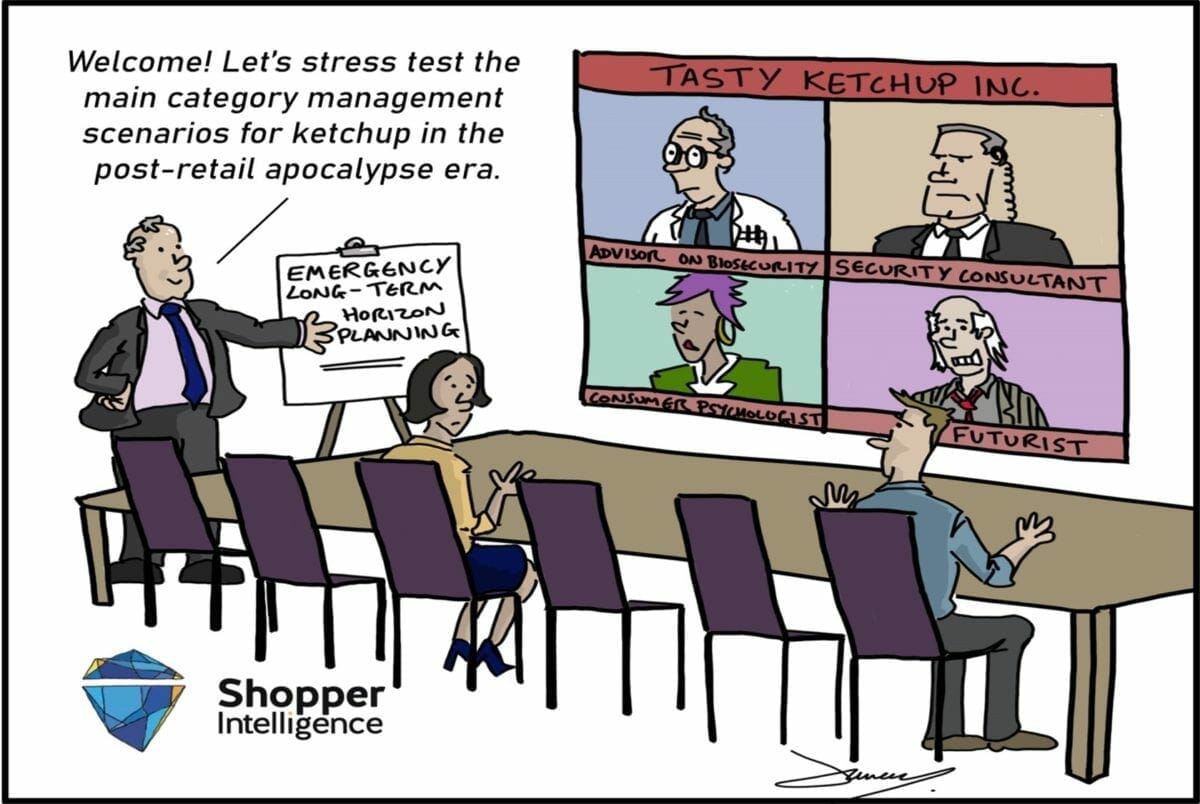
Post-Covid, supermarket shopping will never be the same again
I hear a lot of chat about how the current virus situation will change everything. Surely a worldwide life-changing phenomenon like this will see the world fundamentally altered, and retail will be at the leading edge of that?
I doubt it.
There is a real danger of disappearing down over-reaction rabbit holes. To balance the debate, here is why I believe that we can argue just as quickly that as soon as restrictions lift, things will go back pretty much to normal.
- All of our lives we have times when we need to behave differently: illness, bereavements, holidays, retirement, job loss, these happen at an individual level and happen across society all the time, and yes they impact our behaviours for a while including shopping. But once resolved, we usually pick up where we left off. We don’t stay in the same mindset for long once the cause has gone. Just because we are all in such a moment doesn’t mean we all won’t bounce back.
- Data from China already shows a bounce-back of consumer sentiment once quarantines are reduced.
- Our shopping is driven by needs and attitudes that took many years to establish and are not going to change quickly, certainly not in a matter of weeks. We are creatures of ingrained habit and with our finely tuned “System 1” we already know how hard it is to change behaviour. That will work in favour of established retailing. We don’t learn new patterns in a short space of time. Why even do we need to?
- While I’d love to think our society would flip, e.g. from being “me” oriented to far more socially responsible and caring, through my career I have noted the power of self-interest, time and time again. That’s not to say that we won’t come out of this more caring, just that this has to be converted into pragmatic me-based choices to be sustainable.
- Consumers simply don’t worry as much about shopping as we professionals do. The issues of shopping take up maybe 1% of most people’s concerns. Right now, all other parts of life are taking up the bandwidth, not shopping. Briefly “out of stocks” pushed grocery stores down the Maslow hierarchy, and created drama, and for a time, shopping mattered. But when things get reversed the small piece of life that is about going to the shop will go back to its usual place without too much fuss. Even now we are not stuck at home worrying about how we will shop when this is over.
Of course, incremental change also happens over time, across society. It was happening already, and elements might get a little nudge ahead by the crisis.
All life events have a small impact on each of us. There likely will be a recession, so we can all look up information about buying patterns in past times like that. Short term, there will be a post COVID “bounce” as pent up energy (and for some unspent money) will demand release. A celebration almost. More permanently, indeed, some will have trialled online shopping in new outlets (although I note, penetration of online shopping was already at 82%, so it’s not as though the idea was new to people). Maybe shoppers also got a bit more familiar with their local corner shop or farm shop?
The implication from the above for consumer goods marketers and category people is not to get too distracted by doomsday scenario planning. High-quality sensible thinking about the ordinary day to day reality of the supermarket will soon be back on the list. Make sure you are as ready for that – as you always were. And our shopper viewpoint “why” and “how” data is all set to help. Crucially we’ll then look at the “before” and compare it to the “after” to have a cold, clear-eyed view of the “new normal”. Whatever that is.